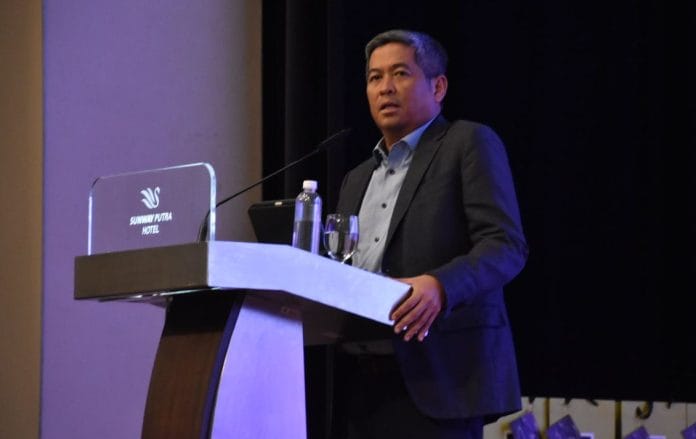The Inland Revenue Board (IRB) will uphold and enforce three principles to improve the relationship between taxpayers and tax administrators, namely transparency, accountability and trust.
IRB Chief Executive Officer Datuk Dr Abu Tariq Jamaluddin (pic) said it is certain that every ringgit contributed by the people is important in ensuring the development and stability of this beloved country. “We need to improve and be able to change to a positive perception by conveying an accurate narrative regarding the importance of taxes to the country, race and religion. This would contribute to national revenue collection and fulfil responsibilities as a tax payer.”
Speaking at the first Town Hall Session in 2024 held with key members of the media in Kuala Lumpur today (Feb 15), Abu Tariq said IRB’s strategy will be based on ‘behaviour’ or taxpayer categories. For groups of taxpayers who lack awareness and understanding of tax requirements or laws, activities based on education and information will continue to be intensified through programmes planned together with IRB’s strategic partners.
“A more responsive and immediate action has been seen with IRB’s priority to help this group comply with taxation laws. For the group of taxpayers who continuously show excellent performance in the aspect of tax reporting and payment, the ‘cooperative compliance’ method which is cooperation and of ‘mutual understanding’ between IRB and taxpayers will be the focus,” he said at the event.
Abu Tariq also drew reference to Prime Minister Datuk Seri Anwar Ibrahim’s earlier announcement where the latter said the collection of tax revenue by IRB in 2023 was RM183.3 billion, which is an increase of RM7.8 billion from the previous year or an increase of 4.49%.
This amount collected was actually the highest in Malaysia’s history in the form of direct tax collection.
This year the target set for direct tax collection as announced during Budget 2024 is as much as RM197 billion. In order to achieve this target, IRB has planned various strategies to ensure tax compliance is at an optimal level.
Tax Corporate Governance Program (TCG)
As previously announced, the Tax Corporate Governance Program (TCG) has been introduced since March 2022 and will be implemented as a ‘pilot’ from June 2022. In the middle of this year (2024), the implementation of the TCG programme will enter a new phase which is its full implementation phase open to all organisations that qualify and meet the criteria that have been set.
TCG is an initiative under the ‘Cooperative Compliance’ aims to create a better relationship between taxpayers and tax administrators.
He explained for categories of taxpayers identified as having a risk of tax evasion, compliance activities such as audits and investigations will be enhanced. This year IRB will focus on individuals who have assets and wealth which does not commensurate with the tax reporting made. Under the law, IRB can reopen a case within a 5-year period and if there is an element of negligence and fraud, there is no time limit set.
Malaysians Keeping Money Abroad
IRB will also examine information on individuals who keep money abroad. The IRB periodically received such information from tax authorities around the world. Checks and intelligence measures will be implemented to ensure that tax has been paid on such savings abroad, on whether the savings originated or resulted from activities within the country. If there is an indication of non-compliance, the case will be forwarded to the audit and investigation team for further action.
Online Transactions
IRB will also focus specifically on any individual or company which generates income through online activities. IRB will identify whether tax reporting has been made against income received through this medium. IRB has information and data for this category and will contact those involved to ensure that income reporting is valid and up to date.
Shadow economy
In addition, IRB also focuses on shadow economy cases. “This shadow economic activity has created a big impact on the tax gap in our country. Shadow economy activities are often associated with unregistered and unlicensed businesses that do not make tax declarations, including part-time jobs that receive salary or wages in cash to avoid income reporting and income tax payments.
IRB’s specific focus in relation to the shadow economy will now be on foreigners who carry out business activities in their own name or in a ‘borrowed’ name of local citizens. It is only appropriate that foreigners who also enjoy all infrastructure facilities, security and national development contribute to the country’s income. If there this group is found to evaded paying taxes a penalty which commensurate with the evasion will be imposed.
The IRB also takes a serious view of tax leakage due to activities between related companies. Cross-border transactions also include transactions with entities. Labuan will be the focus. Generally, it is not an offense for a company to make tax planning, however if a transaction has no other benefit other than taxation, a review of the tax treatment on the transactions will be carried out by the IRB.









